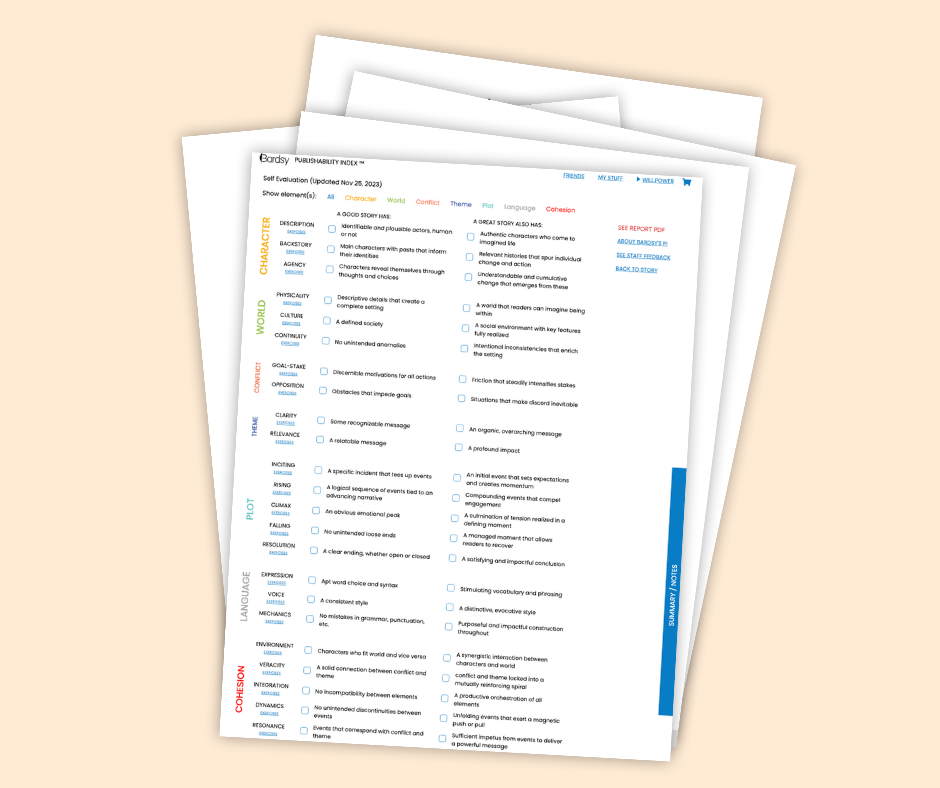NaNo, No Go: NaNoWriMo Alternatives For You and Your Unfinished Novel
If you participated in National Novel Writing Month this year, you're likely disheartened by the scandal. Whether you finished the month but didn't reach 50,000 words (an impractical goal for most) or were appalled and called it quits when the news broke, you're now the author of a partially finished novel.
Feeling overwhelmed is understandable, what with the loss of the social support and motivation provided by NNWM. Not to mention, dealing with the pressure of having a partially completed project peering over your shoulder. Rest assured, if finishing your novel sounds daunting right now, you aren’t alone in your frustrations.
So, what should you do?
First, don't quit! Persistence, now and forever, is the only route to success in the writing game. Read what follows to set up a plan to complete your first draft,
polish your manuscript and publish. Specifically, to replace NNWM, you need to secure social support, i.e., rebuild your community, and then you need to solve the problem inherent in all novel sprints: facing the emotional and practical frustration when you don't reach an unreasonable goal.
Where Can I Find Social Support Post NNWM?
At its ideal, NNWM offered writers a way to work alongside their peers toward separate but similar goals. This social support held much of the draw, as writing can be an isolating activity, and
it's natural to want to connect. It also provided accountability, helping writers stay motivated.
Unfortunately, it fell short in some areas, even setting ethical concerns aside. If you've spent any time in online forums, you know not all social support is created equal. When virtual gathering spaces aren't well-moderated or the participants vetted, dedicated writers must wade through trolls and dodge unsavory types eager to prey on authors.
Another disappointing truth is that even your fellow writers may not act in good faith; you could critique a story for an author who never returns the favor or swap beta reads with someone who vanishes into the night. It can be surprisingly challenging to connect with other authors looking to support one another, and even more challenging to find authors who seek to give and receive constructive feedback.
Quality feedback helps you write a quality story, and since the goal of most writers is to one day sell their work, it provides invaluable insight into
how your readers will view your work. However, as stated above, this kind of feedback is hard to find–unless you know where to look.
Consider a Writing Workshop
Here's an idea, if you have the resources: Bardsy's writing workshops are a great place to receive peer feedback on a chapter-by-chapter basis. All workshop members are carefully screened to ensure they are good, committed, and kind writers who will contribute positively to the group.
In addition, since our workshops are facilitated, you'll benefit from the
direction of a coach who will use their extensive experience to help you identify developmental issues in your story, guiding you through the required steps to resolve them. Finally, your coach will act as a guardian of sorts, maintaining an environment conducive to creative growth by weeding out bad actors.
There’s no question that knowing other writers are working on their stories while you work on yours creates a sense of community that’s motivating, making the solitary task of writing feel less isolating. Additionally, your coach will help you close the distance between where you are and where you want to be by serving as a teacher, cheerleader, motivator, and mentor. This kind of social support is invaluable; hence, one of our favorite Bardsy sayings, "Work independently, together."

Bardsy Fun Fact: We carefully curate elite groups according to: your point in the process, genre, and personality to determine which will benefit you most.

What Do I Do With My Novel in Progress?
Whether you have
5,000 or 50,000 words, now you’re wondering where to go next. After all, you don’t want to squander the time you’ve put in. Here’s what we recommend:
Inventory What You’ve Written
Now that the month is over, it's time to assess what you've written, not just word count, but story-wise. When you're concentrating on writing as many words as possible in a short period, as NNWM encourages, it's easy to focus on output alone, losing sight of what you have and what you need.
Taking stock of your story lets you see what you've written, allowing you to move forward with purpose, adding in the missing components until you have a complete novel. This step is especially crucial if you write non-linearly, since keeping track of which story elements you still need can be difficult.
Fine-Tune Your MCS
Next, you’ll want to ensure your Minimum Complete Story (MCS) aligns with your story’s progression. Reminder: the MCS is your novel distilled in a few sentences. As you continue to work on your story, keep your MCS in your active memory, retelling it to yourself to stay on course and revising when needed to match your novel’s development.
If this is your first encounter with the concept, or you need help amending your current MCS, stay tuned! Our next blog covers the art of crafting a coherent MCS and how to use it as a guide while writing and revising your novel.


Writing is revision. All prose responds to work.
― Tracy Kidder
Use the Publishability Index™ as a Checklist
Once you've taken stock of your efforts and recalibrated your MCS, it's time to move on to the next step: evaluating your work. Evaluating what you've written requires a guide, which is where the
Publishability Index™ comes into play.
Use it as a checklist while reviewing your work to see if you have all the elements needed for a complete story, knowing that, since it's a work in progress, there will be areas needing further development. For a deeper explanation of how to use the PI™, peruse our blog detailing how to evaluate your story.
Get Professional Feedback on Your First Chapter
Finally, if you emerged from the month with a first chapter, consider entering it in our 2023 Winter Anthology Contest. You'll receive a PI™ completed by our editorial team and a written report assessing your first chapter's strengths and weaknesses. Along with this editorial critique, you'll have the chance to earn a sought-after spot in our anthology, along with a grand prize of $1,000 and a $50 prize for all finalists.
Above all, remember, no matter what your word count was at the end of the month, the important thing is to continue writing. Be proud of your accomplishments and focus on what you can do to keep progressing, whether that's joining a Bardsy workshop for support and coaching or entering the Anthology Contest and receiving feedback on your first chapter. (Or both!)


